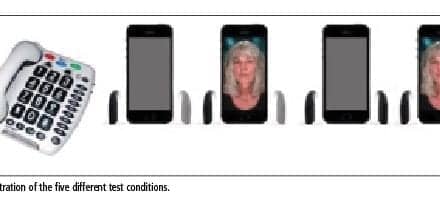Your hearing care practice can only be as good as the people you have working for you. A practice consisting of people hired on the fly to cover open positions, who are there mostly for a paycheck, will ultimately not be as successful as one where top-quality employees were chosen deliberately, based on their skills. And where they feel nurtured and, thus, compelled to stay.
In a small business, it’s easy to feel you have to find “warm bodies” to fill positions when vacancies come up, just to keep things running smoothly. But ultimately, this does your practice a disservice because its small size underscores the fact that every employee counts. Becoming more conscious of your hiring practices, training new employees properly, giving them feedback on performance, and keeping lines of communication open will help you to assemble your dream team—and keep these workers with you for the long haul.
Make the hiring process easier for yourself by determining the qualities your ideal candidate would possess and create a job description. Communicate your needs explicitly in job ads and during interviews, and choose the person who best fulfills these needs.
To find qualified dispensing professionals, begin by assembling an adequate pool of job candidates. The audiology field is highly specialized, so it is advantageous to start looking for talent in your own backyard— the hearing care industry—rather than through large recruitment portals such as Monster.com. Running job ads in industry publications and Web sites such as HR, and those of national organizations like the American Academy of Audiology, Academy of Dispensing Audiologists, the American Speech-Language-Hearing Association, and their counterparts in your state, is a good idea.
To find leads, don’t overlook the obvious: Put an ad in your local newspaper. Spread the word among your colleagues, and talk about your staffing needs with people you meet at industry conventions. Send job announcements to audiology programs within a reasonable distance from your practice.
Finding top-notch support staff can be as simple as placing an ad in your local newspaper. Ask your current employees for referrals—and offer a referral bonus.
Start off the recruiting process on the right foot with a clear statement of the skills and qualities of the employee you are seeking. For example, if your practice offers balance services in addition to hearing aids, and you want someone who is able to work with both kinds of patients, say this up front in your ad to avoid wasting valuable time.
The Process Begins
When résumés start coming in, read them closely and do some critical thinking to evaluate what you see. To find hearing care professionals, give greater consideration to recent graduates and people with continuous employment over those reentering the industry after 5 or 10 years away; technology has been changing dramatically. The dispensing professional you hire should need training only in your unique way of doing business, not require a refresher course in the field.
Look for potential employees who have experience in your practice’s areas of focus. If you provide hearing aids and assistive listening devices (ALDs), choose candidates who have counseled patients on ALDs so they have the skills your company needs.
As for support staff, former medical office employees are ideal. Ask for this type of experience in your ad and look for people who have several years of medical experience handling a variety of tasks so they’ll be comfortable wearing many hats in your organization.
From your candidate pool select potential employees you definitely want to interview. During “face time” with candidates in job interviews, obviously, you want to determine whether they can do the job. Have a stock set of questions to ask that give you a picture of how each person might contribute to your practice. To get a sneak preview of how each person might function under pressure as a member of your practice, ask questions that require candidates to talk about how they have functioned under pressure at past jobs, and how they would handle themselves in specific challenging situations in your practice. Ask about anything on a résumé that makes you curious.
Once you’ve settled on the right person, made an offer, and he or she has accepted, you need to focus on training so your new hire understands your expectations and how your practice operates. Use the job description you created to outline all the tasks the new hire will be expected to complete. Discuss the goals you’ve set for your practice and the employee. Be explicit so there won’t be any surprises down the road, and encourage him or her to ask questions.
Special Strategies
For training the new hire in how to handle various processes at your office, such as how to log patient and sales information, sit down with the employee to teach the process yourself, and/or have him or her shadow another employee involved in the process.
Some aspects of the job may require more intense training, such as role-playing. For example, if you offer a hearing aid financing plan and your new hire has not worked with one before, you need to be sure he or she knows exactly what to say when discussing the availability of the plan—as well as other payment options—with clients.
When a clinician recommends a hearing aid, he or she should calculate the amount of the monthly payment and tell the patient. Explain to new employees that this strategy is important in getting patients to try hearing aids. A 2006 study reported that 20% of respondents said they would delay getting hearing aids if their audiologists didn’t offer financing options, and 24% said they would ask for lower cost hearing aids—even if the lower cost option wasn’t necessarily the best one for the patient’s needs.3
Also make it a point to tell your new hire to offer the payment plan to all patients, not just those who appear to need financial assistance, rather than making assumptions about what they can afford. Emphasize how important this is so the opportunity is not lost to provide each patient with the hearing help he or she needs. New support personnel should also be trained to discuss the hearing aid financing programs you offer when speaking to potential patients over the phone, and to mention that these programs are a way to break hearing aid payments into more manageable monthly chunks. Point out that informing callers of your payment options can retain patients who are particularly concerned with costs. The 2006 study revealed that the availability of a hearing plan ranked fourth out of 11 important considerations when selecting hearing care professionals.3
Correcting and Rewarding
When you believe your new employee is fully trained, your work is not done. You should observe how the person interacts with patients and staff. Discuss any concerns you may have and provide strategies for adopting the appropriate behavior. If the new employee is meeting or exceeding your expectations, be sure to communicate this and offer the reward of verbal praise and perhaps a modest gift to let him or her know how grateful you are for the positive impact he or she is having on your practice. This will reinforce the employee’s eagerness to please you.
After you hire someone, there is always a chance that, despite following all these steps to make a careful search for the right person, your new employee still might not work out, or could leave the job unexpectedly.
But going through the hiring practice this way will eliminate a lot of the guesswork and most likely bring you a highly skilled employee who does a good job and is happy to be doing it for you.

Danielle Campbell-Angah is a former editor of an audiology magazine and currently works as a freelance writer for CareCredit. Correspondence can be addressed to HR or Danielle Campbell-Angah at .
REFERENCES
- BusinessTown.com. Hiring top performers. Available at: www.businesstown.com/hiring/hiring-top.asp. Accessed June 22, 2007.
- Reh FJ. Job interview questions to ask. Management, an About GuideSite™. Available at: management.about.com/od/managementskills/a/InterviewQ70204.htm. Accessed June 22, 2007.
- Inquire Market Research. Purchase behavior among hearing loss patients: results of a study with 200 patients requiring a hearing device. Santa Ana, Calif: Inquire Market Research; 2006.




